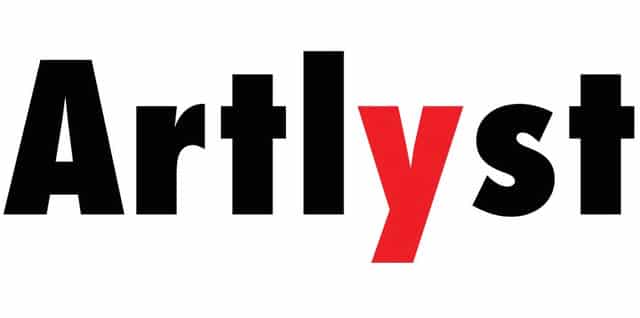Tate Modern is considering accepting a sculpture/performance piece installed in Tate Modern’s Turbine Hall by over 100 members of the art collective Liberate Tate on 7 July. A public call for the London gallery to accept the work for the nation is causing controversy and raising issues about the gallery’s link to oil giant BP. The Tate’s Director Nicholas Serota has confirmed that the Tate’s governing Board of Trustees is to decide at an upcoming meeting whether the 16.5 metre, 1.5 tonne wind turbine blade that art collective ‘Liberate Tate’ installed in the Turbine Hall is to be accepted into the Tate’s permanent collection.
The artwork, called ‘The Gift’, was installed in an unofficial performance involving over 100 members of Liberate Tate, the group that has become internationally renowned for artworks about ending the relationship of public cultural institutions with oil companies.The artists also submitted official documentation (see below) for the artwork to be a gift to the nation ‘given for the benefit of the public’ under the provisions of the Museums and Galleries Act 1992, the Act from which Tate’s mission is drawn.
In a communication to Liberate Tate, Serota said: “Thank you for this formal offer of the object that you deposited in the Turbine Hall which will be presented to our trustees for their consideration at their next meeting in September”. The Tate Trustee’s Board Meeting is on Wednesday 19 September at Tate Liverpool. In recent weeks the public call for Tate to accept the artwork on behalf of the nation has been growing. Over 1000 people have signed a Tate member petition ‘Bring the wind turbine blade back into the Turbine Hall’ calling on Tate Trustees “to accept the artwork as part of Tate’s permanent collection”.
The petition letter to Nicholas Serota and Tate Trustees also says: “Liberate Tate created this artwork using an icon of renewable energy with an express wish for Tate to stop its relationship with BP so the public gallery’s reputation cannot be used to improve the oil company’s terrible image following the Gulf of Mexico disaster. “Through your relationship with sponsor BP, Tate is forcing climate-conscious gallery goers into an uncomfortable position of complicity with the oil company, one of the most environment-destroying corporations on the planet”.
The role of the Board of Trustees of Tate, both a publicly funded institution and a charity, includes acting as guardians for the public interest as well as deciding on major acquisitions. The Chair of the Tate Board is former BP Chief Executive Lord Browne. Sharon Palmer from Liberate Tate said: “The Gift is a work we’d hoped would resonate with artists, art lovers and the wider public; people who care about the harm being done by this oil company to affected communities, the world we live in and generations to come. We are delighted that the public and artists want Tate to accept the work for its collection.”
Tate Trustees have an agreed policy of working with artists and audiences to inspire new thinking around sustainability and Tate is committed “to find appropriate and imaginative ways to reflect the responses and commitment of artists [that] engage with environmental issues in their work and have chosen to be vocal in public debate … to maximise the potential for public engagement and discussion through art”.
Unilever recently announced it was ending its sponsorship of commissioned works in the Tate Modern Turbine Hall. Tino Sehgal’s These associations, is the last work sponsored to be by Unilever and closes 28 October. The Turbine Hall could be used to re-present Liberate Tate’s The Gift from November or the Tanks used when the Turbine Hall temporarily closes in 2013 due to Tate’s expansion project.
Whilst Unilever ends its series with Tate to focus its sponsorship budget on reducing its environmental impact, Tate sponsor BP continues environmental destruction. In addition to the catastrophic Gulf of Mexico spill, BP is also expanding into devastating tar sands extraction in Canada, is drilling in risky regions in the Arctic and as a company is responsible for more carbon emissions than the UK itself.
The Gift is Liberate Tate’s fourth artwork in the Tate Modern Turbine Hall.
Pictures and footage of the performance of The Gift are available for media from http://www.flickr.com/photos/toastyoneuk/sets/72157630466036976/with/7521674822/
The collective’s performance actions have included:
•a contribution to Tate Modern’s 10th Birthday celebrations (28 May 2010) by hanging dead fish and birds from dozens of giant black helium balloons in the Turbine Hall
•an ‘oil’ spill at the Tate Summer Party celebrating 20 years of BP support (28 June 2010)
•the installation art work, ‘Crude’ which saw over 30 members of the collective draw a giant sunflower in the Turbine Hall with black oil paint bursting from BP-branded tubes of paint (14 September 2010)
These actions were picked up by the press worldwide and set off a national debate about ethics and art sponsorship. This has led to a growing movement of artists and the public, including Tate members, raising their voices for a more ethical approach to funding. Liberate Tate meets regularly to discuss ideas, run workshops and organise performances and other interventions. The collective is open to all who want to create art actions for a sustainable future.
Photo: Martin LeSanto-Smith

